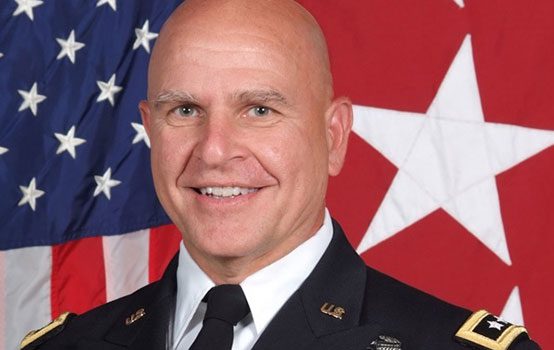H.R. McMaster, Threat Inflation Advisor

McMaster’s public statements on North Korea continue to be alarmist and irresponsible:
White House national security adviser H.R. McMaster said in an interview Tuesday that the United States doesn’t want to risk coexisting with a nuclear North Korea.
“We can’t tolerate that risk,” he told CBS in an interview Tuesday morning. “If North Korea has a nuclear weapon, who are you going to try to prevent getting one? [bold mine-DL] Look at the regime, the hostility of this regime to the whole world.”
McMaster must think he is making a very clever point here, but it comes across as nonsensical. North Korea has nuclear weapons, and it has had them for over a decade. Their possession of these weapons doesn’t mean that other states will necessarily acquire them, nor does it mean that other efforts to prevent proliferation elsewhere can’t succeed. North Korea is unusually determined to have a deterrent, because more than most regimes in the world it thinks nuclear weapons are its only guarantee against attack. Thus far, the administration has been giving them no reason to believe otherwise. It is unfortunate that this is how things have turned out, but the U.S. has to learn how to live with North Korea as a nuclear weapons state. The costs and risks of trying to undo this are what the U.S. absolutely cannot tolerate.
The nuclear deal with Iran that McMaster’s boss likes to trash as the worst of all time is one way of preventing another state from developing the means to build such a weapon. The U.S. has, in fact, tolerated far graver risks than North Korea’s possession of a small number of nuclear weapons, and a responsible National Security Advisor would not seek to blow a manageable threat like this one out of proportion. To his discredit, McMaster has engaged in the worst kind of threat inflation and fear-mongering on this issue.
McMaster also dismissed the possibility of diplomacy with North Korea:
“The President has made very clear that on North Korea for example, now is not the time to talk,” McMaster responded. “And what he means is, there can’t be negotiations under these current conditions … The problem is now that their programs have advanced so far we don’t have time to do that again and so we can’t repeat the failed pattern of the past.”
Insisting that North Korea has to make major concessions before talks can even begin is a repetition of previous failed attempts to compel them into doing what the U.S. wants. Demanding that North Korea give up something it has repeatedly said is not even up for discussion is guaranteed to “repeat the failed pattern of the past.” It is because North Korea’s programs have advanced as far as they have that negotiations are now the best and perhaps only reasonable course of action left. Unfortunately, Trump and McMaster keep talking about North Korea as if their programs can still be halted and dismantled. They can’t, and the administration’s refusal to come to terms with this increases the chances of an unnecessary and devastating war.